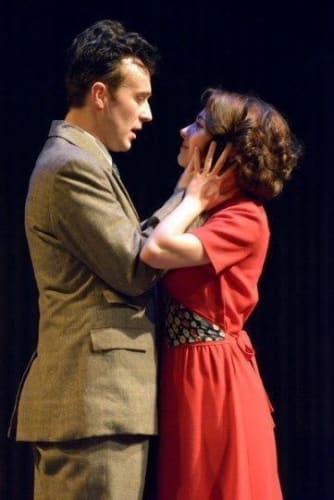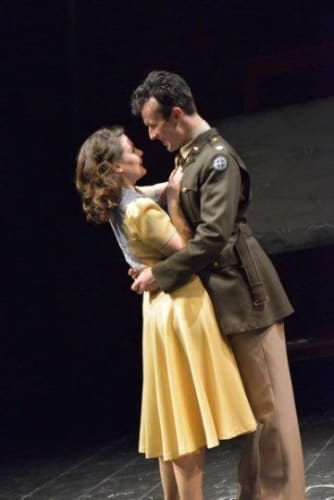In the eyes of playwright Tom Morton-Smith, J Robert Oppenheimer was a mass of contradictions.
In 1939, when we first meet the character portrayed with great humanity and colour by John Heffernan, he is a left-leaning Professor of Physics at Berkeley, idolised by students for the kind of genius that only appears once or twice in any generation.
Three hours and the duration of the Second World War later, he has become a haunted anti-hero, set to be reviled by history as the progenitor of a bomb that ended a war but killed untold thousands and blighted the lives of many of their descendants.
The heart of the play tells the story of what happened in between.
At the opening, Oppenheimer was at the very least a Communist sympathiser and possibly more, mixing (and sleeping) with card-carrying members who believed that the future lay with Russia rather than their own country.
This threatens to haunt him throughout the War, meaning that he literally cuts off communications with his brother Frank and sister-in-law to avoid the kind of recriminations that prefigure the formation of the dreaded House Un-American Activities Committee.
Unlike the archetypal nutty genius, this version knew how to enjoy himself, drinking and partying, while running affairs outside his marriage to Thomasin Rand's strong-willed Kitty, who herself seduced the scientist in an adulterous relationship. The human interest peaks with the death of his former lover Jean, a psychiatrist with her own problems, played by Catherine Steadman.
Inevitably, while the biographical strand of the plot shows the human side of an almost tragic figure, the evening also focuses on the science, showing the other side of a story partially covered by Michael Frayn in Copenhagen.
Actors spend a fair proportion of the performance clarifying some often impenetrable concepts and scrawling in chalk on walls, floors and a blackboard in their attempts to make the science a little more accessible for their lay spectators.
The bulk of the play covers the period when Oppenheimer and his unruly crew of scientists find themselves press-ganged into the army under the iron fist in a velvet glove of William Gaminara playing General Groves, an engineer-soldier who helped build the Pentagon.
Possibly the most intriguing debates in a work that contains language that frequently verges on the poetic consider the morality of war and the efforts that are required to end it. There can be no winners but at least we come away with some conflicting views of a moral conundrum that the greatest philosophers have never successfully rationalised. Can killing the innocent to end the war ever be justified?
Oppenheimer is a deeply intellectual piece of theatre that requires considerable concentration from viewers without a scientific background. It rewards them with a little humour and a great deal of valuable analysis of some of the greatest issues that have troubled the free world over the last three quarters of a century.
In an effort to stop heads from bursting, Angus Jackson's production is sprinkled with dance routines and more pertinently period music recreated by Grant Olding, best known for his skiffle accompaniments to One Man, Two Guvnors.
While this RSC transfer from the Swan in Stratford-upon-Avon cannot be classified as light entertainment, it is an important and rewarding play that deserves to be seen.


